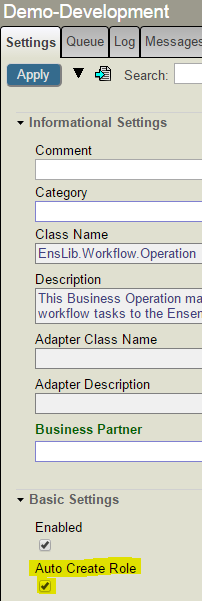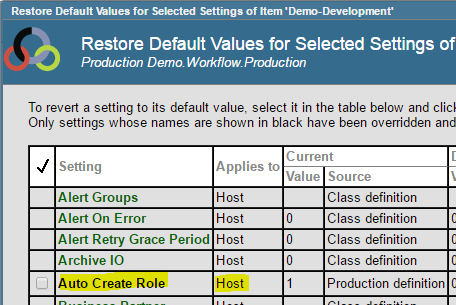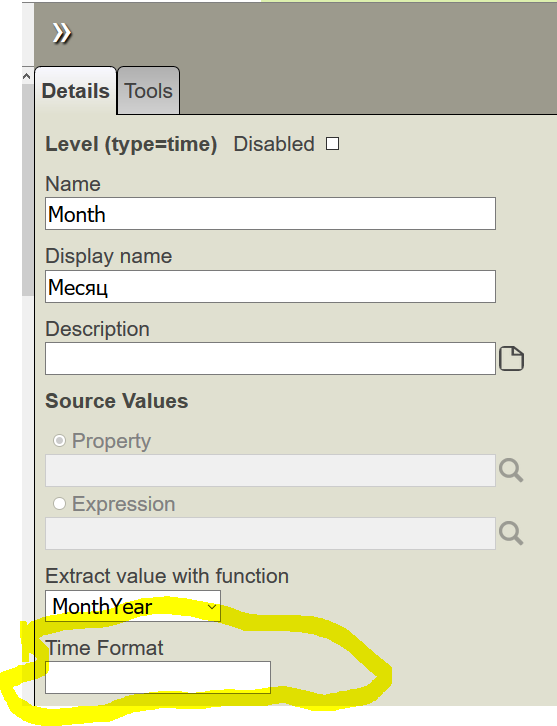Hi,
While accessing Trakcare in IE 11 i am getting error:
The Trakcare Layout Editor is not functioning.Please check your browser security setting for scripts and ActiveX controls.You must have ensemble installed locally to use this application.
Hi,
While accessing Trakcare in IE 11 i am getting error:
The Trakcare Layout Editor is not functioning.Please check your browser security setting for scripts and ActiveX controls.You must have ensemble installed locally to use this application.
I have an iKnow domain and a blacklist called Ads.
I want to get all sources that do not contain entities from Ads list.
Currently I'm doing it like this:
ClassMethod NoAds()
{
#dim domainid As %Integer = 1
set filterNot = ##class(%iKnow.Filters.GroupFilter).%New(domainid,, $$$YES)
#dim blackListId As %Integer = ##class(%iKnow.Utils.MaintenanceAPI).GetBlackListId(domainid, "Ads")
set sc = ##class(%iKnow.Utils.MaintenanceAPI).GetBlackListElements(.blackList,..#DomainId, blackListId)
set filterAds = ##class(%iKnow.Filters.ContainsEntityFilter).%New(domainid,Let's say I have a user-generated document template with placeholders and I want to replace them with actual values.
Values could be:
So far I wrote a simple find/replace tool that works with RTF format (because it's not a binary format), here's how it works:
set template = "D:\Cache\RTF\template.rtf"
set var("%title") = "Hello"
set var("%table") = $lb("Utils.RTF", "TestFunc")
set result = "D:\Cache\RTF\out.rtf"
set sc = ##class(Utils.RTF).replace(template, .var, result)There should be two placeholders in RTF template: %title and %table and the are replaced with "Hello" and
Question:
How can I get a value of a setting of a Production item programmatically?
Answer:
You can use one of the API methods of the Ens.Director class, for example:
Ens.Director:GetItemSettingValue()
For example –
In the Production Demo.Workflow.Production the item (Business Operation) 'Demo-Development' has an 'Auto Create Role' setting:

Clicking on the Settings Defaults button you can see this is a 'Host' setting:

And you can access the value using this call for example:
ENSDEMO>write ##class(Ens.Director).GetItemSettingValue("Demo-Development","Host","AutoCreateRole",.status)
1Note the first
I have a serial object:
Class EmbedObj Extends %SerialObject
which is stored as a property of another object
Class ContainerObj Extends %Persistent
Property InnerObj As EmbedObj;
Property Foobar As %String;
Question:
From within the context of an instance of EmbedObj, how can I navigate to the containing instance of "ContainterObj" and find that value of its Foobar property?
Harder Question: Is there a way I can do this as part of SQLComputeCode? (my EmbedObj has a Calculated property which now needs to depend on the value of property Foobar of the containing object).
Thanks in advance for any help
Hello,
If this question is in the wrong section, I apologise.
Has anyone ever used Cache Object Script to connect to any hardware such as a sensor?
What I mean is this :-
Lets assume that code has been written in Cache Object Script where it can detect breaks in electrical connections.
There is some sort of wire/cable that is plugged into the PC and then this wire/cable runs to say a house window or door and is connected to some sort of sensor, when the window/door is closed then the circuit is complete, when the window/door is open the circuit is broken and somehow Cache Object Script knows this
I've set up a Ens.Alert routing rule and would like to route alerts to different email groups based on business partner or alert group instead of relying on source config using Document.SourceConfigName. Is there a way to reference the business partner or alert group property in a routing rule?
You can compile all csp and cls by studio.
I know you can do it for the terminal, but it is slow, can you do it for the studio itself?
How to improve studio performance
We are updating from 2015.1.1 to 2017.2. I am testing the Hot JVM functionality to see if our current functionality is working in the new version of 2017.
I am having a problem trying to make it "fail".
Generally if I put in an invalid renderport then I usually get an error. Now if I put in an invalid renderport it generates the PDF anyway (FOP).
Was there a change where if it fails using the renderserver then it will create a new instance of Java to produce the PDF?
Hello All,
I hope it's not a silly question.
Here is my issue:
I have 3 simple classes:
Parent class, let's say:
Class ParentClass Extends %RegisteredObject
{
Property a As %String;
}
and two children classes
Class A.Child Extends ParentClass
{
Property b As %String;
}
Class B.Child Extends ParentClass
{
Property c As %String;
}
So no issues - all compiles and seem to work.
But, when I add %XML.Adaptor to my parent class, so:
Class ParentClass Extends (%RegisteredObject, %XML.Adaptor)
{
Property a As %String;
}
I can no longer compile any of the three classes involved and I get this error:
-----------------------
Is there compatibility with java language in the studio?
I was approached recently by and end use who wanted to perform analysis of their databases and see how they could save some space by picking data good for deletion without harming the application. As part of investigation, they wanted to know sizes of globals within datasets. This can be achieved by various means but all of them provide data in text form only.
I thought I might be a good tool for database administrators in general - to see global sizes in a graphical way.
I have several stored procedures that when I execute them they will only return a single snapshot. In my BP I have been setting this to a Snapshot variable then looping using a WHILE through the snapshot variable just to get that single value.
Since it is only a single row, is there an easier way where I don't have to do a WHILE loop to pull the values out of that row? Can I call First Row or something like that to get me just the row into the Snapshot variable?
How to download or send images to excel
I need to embed an image in excel when exporting a report, but I can not.
Can anyone help?
Is there a way to add event listener for a zen control?
I have a custom text control and I want to add 'change' event listener for it.
Is it possible to do not using 'onchange' property?
Hi community!
Is there any way to create new method keywords?
For example:
ClassMethod TestOne() [ MyKeyword = MyValue ]
{
// Implementation
}Another doubt (maybe another topic)
How can I generate new methods at compilation time for the same class?
I tried method generators, but It only gets compiled when I compile for the second time.
I also read this comment but I could not find out how to generate the methods and get them compiled in the first compilation.
For example:
Class util.Test
{
ClassMethod TestOne()
{
Write 1
}
ClassMethod TestTwo()
{
Write 1
}
}
Expected:
Cl
Hello,
I want to know if there is any possible way to use the same query for different ODBC schemas.
Thanks.
When you hear people talk about moving their applications to the cloud, are you unsure of what exactly they mean? Do you want a solution for migrating your local, physical servers to a flexible, efficient cloud infrastructure?
Join Luca Ravazzolo for Introducing InterSystems Cloud Manager, (May 17th, 2:00 p.m.EDT).In this webinar, Luca — Product Manager for InterSystems Cloud Manager — will explain cloud technology and how you can move your InterSystems IRIS infrastructure to the cloud in an operationally agile fashion.
Start of Professional Activities!
The Institute of Space and Information Technologies of Siberian Federal University with the support of InterSystems International Corporation hosts the International Summer School "Start of Professional Activities" from July 9 to July 27, 2018 in Krasnoyarsk, Russia and invites all students majoring in IT to participate.

Time after time on CSP Session page of our Cache 2017.2.1 installation I see that all licenses are consumed by CSP sessions of /csp/sys, /csp/sys/op/and /csp/sys/mgr applications which I assume are sessions of Management Portal. The problem is that there are only few of us accessing the Portal and as we test by browsing Portal, we can't reproduce the problem.
Is there any way to see client IP of CSP session? Any other way to approach the problem?
The problem looks very similar to the Forefox-related one but we don't use Forefox.
Hi guys,
is there any way to configure Ensemle Web Service (EnsLib.SOAP.Service ) to accept HTTP Basic authentication instead of SOAP security headers?
Thanks.
Help, after a day of coding, I wanted to backup my files. I found out that alle of my 3 instances of caché refuse to start.
the error says: cstart-exe-fout (112 Service for Caché instance did not start).
Is there a way to solve this? (off course the management portal does not work either.)
I think there has been a power interruption as the battery from my laptop does not work, and the power went off before
shutdown.
Thanks in advance!
By Paul Mike Kadow
Edited by Deborah Graham and John J. Mitchell
Go to http://cosmumps.org for a download of just the examples of the book and the table of contents.
InterSystems, from a humble beginning, has grown into a worldwide company with its flagship product, Caché, leading the way.
First, this book chronicles and explores some of the many areas InterSystems has grown into and has influenced over the years.
Next, turning to the Caché and MUMPS developer, this book has multiple chapters on Globals, Classes, SQL/Query, etc.
Hi,
I want to splice a PID segement returned from a query, so I can use it in a DTL:
<assign value='context.pidSegment' property='target.{PIDgrp.PID}' action='set' />
I need to set the value of 'context.pidSegment' to something I can use in the DTL objectscript expression
but I'm not sure what method (or property) to use to get the class EnsLib.HL7.Segment segment into a datatype that can be used in the DTL?
I've tried the following to no avail;
Hi,
I was wondering if there is any way to count elements from an array. I guess not as an array could be multi-dimensional and that would be a problem to return the number of elements inside the array.
As an example:
Information about arrays: https://docs.intersystems.com/latest/csp/docbook/DocBook.UI.Page.cls?KE…
Thanks
I have a server with rusw locale but in my cube the time dimension shows dates such as "JAN-2018". Is there a way to either localize that (preferably) or just output numbers like "01-2018"?
Architect:

Analyzer:

Also in architect, in level settings there is a "Time Format" property, what's that? Tried setting it to 3 but it didn't help.

Note: with support for Overlay storage driver for InterSystems IRIS containers this article is no longer relevant. The article is left here for archive purposes.
Does anyone have any sample code for updating Caché users (and specifically Full Name and Comments) via SQL?
Bonus points for knowing specifically what security resource needs to be assigned to allow someone to run the SQL.
Thanks in Advance!
Ben
I have a cache client with a list of several servers.
One of the server is working with an IIS server that is not the Cache DB server.
The connection to the IIS server is only through https (SSL)
I tried to define the Web Server IP Address to https://some.server.name but it didn't let me to specify the https
So I tried to define Web Server Port to 443 but when I chose the SMP it's trying to open http://some.server.name:443/csp/sys/UtilHome.csp
and the same for documentation it tries to open http://some.server.name:443/csp/docbook/DocBook.UI.Page.cls
What should I do in order for the SMP to open the